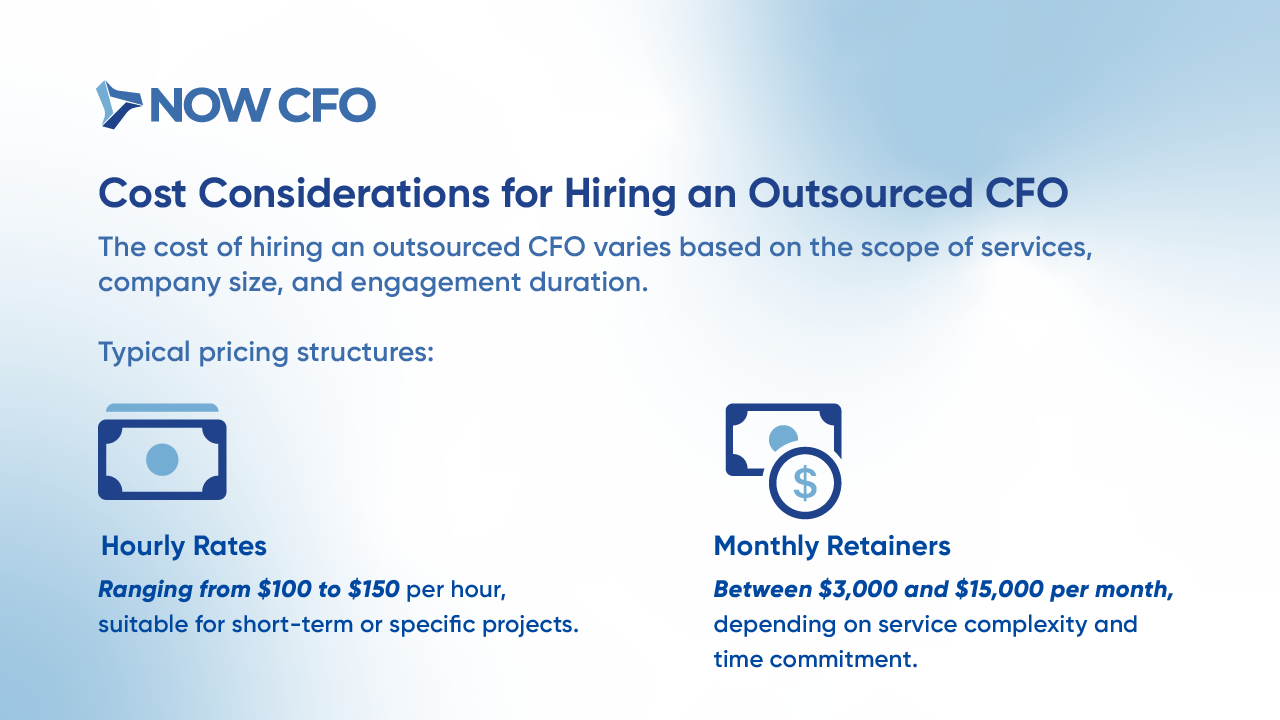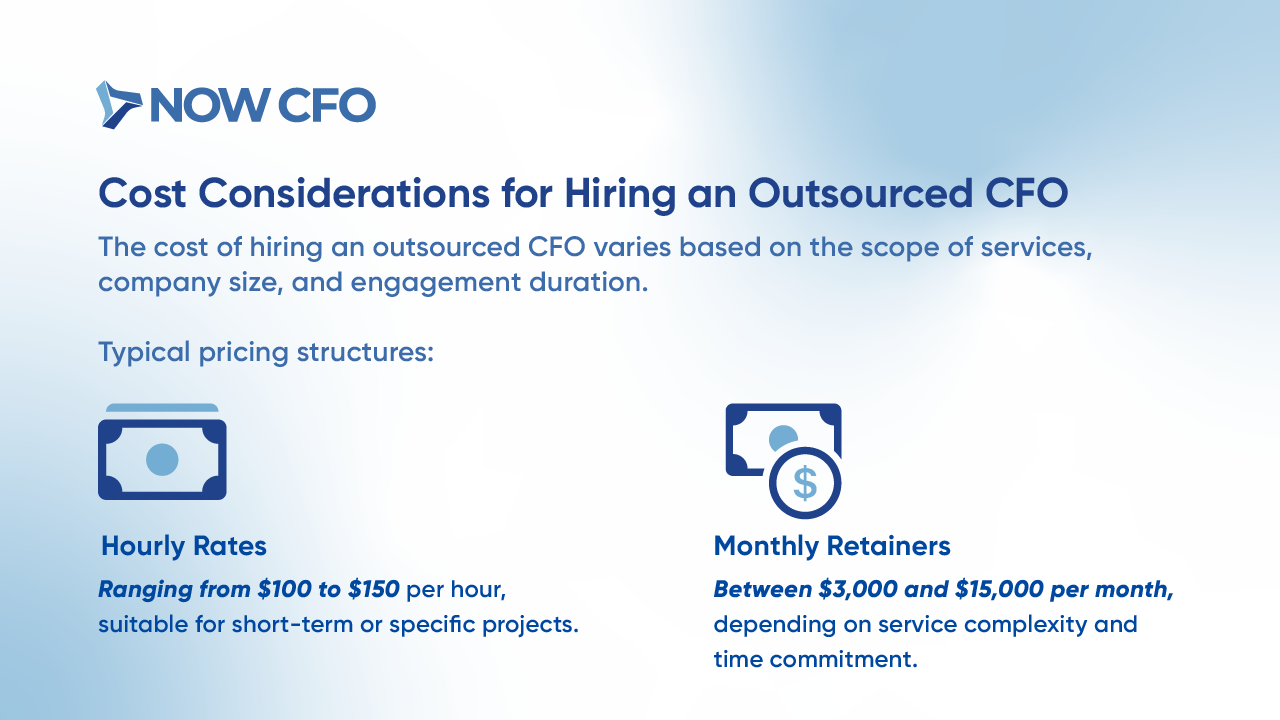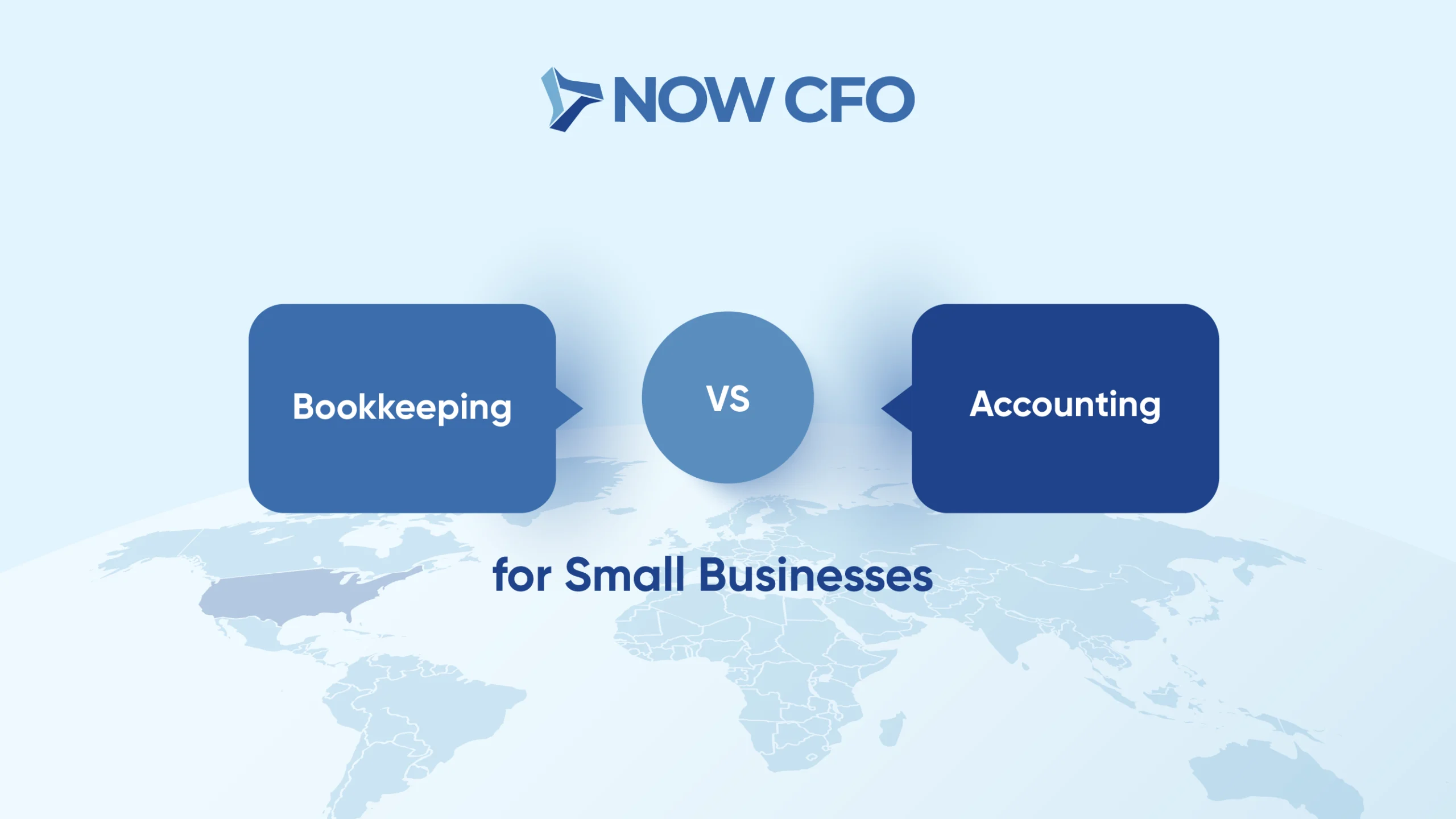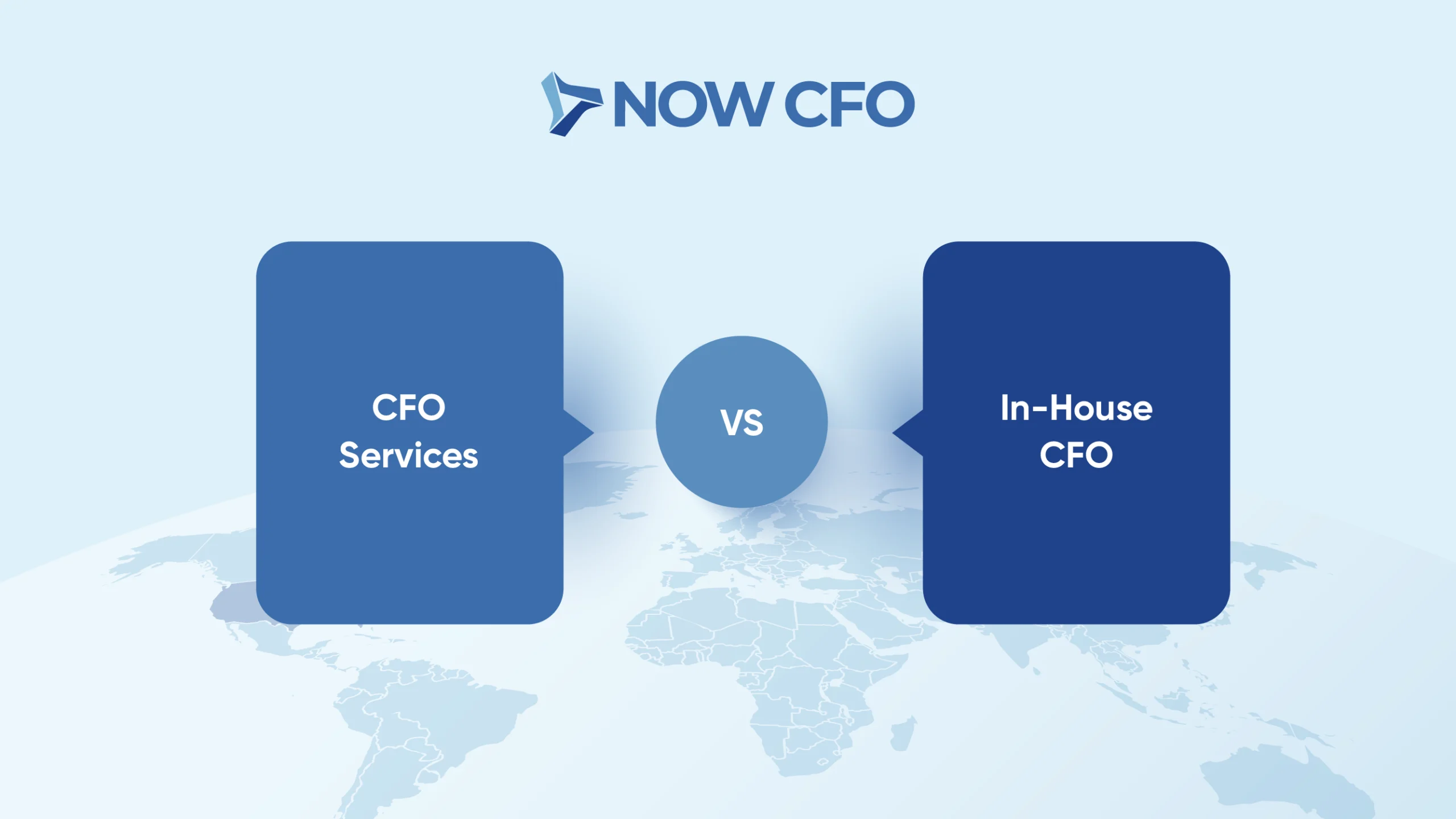
The demand for strategic financial leadership has led many companies to explore flexible solutions. The choice between an outsourced CFO vs fractional CFO hinges on various factors, including business size, economic complexity, budget constraints, and long-term strategic goals.
While both models provide access to seasoned financial professionals, understanding the nuances of each can help businesses make informed decisions that align with their unique needs and objectives.
Understanding the Role of a CFO in Business Growth
The CFO role has evolved significantly. No longer confined to traditional financial oversight, CFOs now play a pivotal role in steering strategic initiatives and driving business growth.
Why Businesses Need Strategic Financial Leadership
Strategic financial leadership is essential for businesses to understand markets and achieve sustainable growth. CFOs provide critical insights that inform decision-making, ensuring financial strategies align with overarching business goals.
Moreover, CFOs serve as key advisors to CEOs and boards, translating financial complexities into actionable strategies. Their leadership ensures that financial planning supports innovation and long-term value creation.
Key reasons businesses require strategic financial leadership options:
- Alignment of financial and business strategies: Ensures cohesive planning and execution across departments.
- Risk management: Identifies potential financial pitfalls and implements measures to mitigate them.
- Resource optimization: Allocates capital efficiently to maximize returns.
- Performance monitoring: Tracks financial metrics to assess and improve business performance.
The Evolving Role of CFOs in Modern Companies
The role of CFOs has expanded beyond traditional financial management to encompass strategic planning and leadership. Modern CFOs are instrumental in guiding companies through digital transformations, sustainability initiatives, and global expansions.
They are now involved in:
- Strategic decision-making: Collaborating with other executives to shape the company’s direction.
- Technology integration: Leveraging digital tools to enhance financial reporting and analysis.
- Stakeholder communication: Engaging with investors, regulators, and other stakeholders to convey financial health and strategies.
- Sustainability initiatives: Incorporating ESG factors into financial planning.
CFO Responsibilities in Financial Planning and Analysis
Financial planning and analysis (FP&A) are core responsibilities of CFOs, involving budgeting, forecasting, and financial modeling. These activities enable organizations to allocate resources effectively, anticipate market changes, and make data-driven decisions.
CFOs oversee:
- Budget development: Creating comprehensive budgets that align with strategic objectives.
- Forecasting: Predicting future financial performance based on historical data and market trends.
- Variance analysis: Comparing actual results to forecasts to identify discrepancies and adjust strategies accordingly.
- Performance metrics: Establishing key performance indicators (KPIs) to monitor financial health.
How CFOs Drive Business Profitability and Risk Management
CFOs play a crucial role in enhancing profitability and managing financial risks. By analyzing cost structures and revenue streams, they identify opportunities for margin improvement and operational efficiency.
Strategies employed by CFOs include:
- Cost optimization: Implementing measures to reduce unnecessary expenses without compromising quality.
- Revenue enhancement: Exploring new markets and product lines to increase income.
- Risk assessment: Evaluating financial risks, such as currency fluctuations or credit exposures, and developing mitigation plans.
- Compliance management: Ensuring adherence to financial regulations to avoid penalties and reputational damage.
When a Business Should Consider Hiring a CFO
Determining the right time to hire a CFO depends on various factors, including business size, complexity, and growth trajectory. Companies should consider bringing on a CFO when:
- Rapid growth: Scaling operations requires sophisticated financial oversight.
- Complex financial structures: Managing multiple revenue streams or international operations necessitates expert financial management.
- Strategic planning needs: Developing long-term strategies benefits from CFO’s insights.
- Investor relations: Engaging with investors and securing funding requires credible financial leadership.
What is an Outsourced CFO?
Today, companies seek flexible financial leadership solutions. An outsourced CFO offers a strategic alternative, providing expert financial guidance without the commitment of a full-time executive.
Definition and Scope of an Outsourced CFO
An outsourced CFO is a seasoned financial professional or firm contracted to deliver high-level financial management services on a part-time, interim, or project basis. Unlike a full-time CFO, they offer flexibility and scalability, aligning their services with the business’s specific needs.
Key responsibilities include:
- Financial Strategy Development: Crafting long-term financial plans that align with business objectives.
- Budgeting and Forecasting: Creating detailed budgets and financial forecasts to guide decision-making.
- Cash Flow Management: Monitoring and optimizing cash flow to ensure financial stability. 82% of small business failures are attributed to cash flow mismanagement.
- Financial Reporting: Preparing accurate financial statements and reports for stakeholders.
- Risk Management: Identifying financial risks and implementing mitigation strategies.
When Businesses Benefit from an Outsourced CFO
Engaging an outsourced CFO is advantageous in various scenarios where specialized financial expertise is required without the overhead of a full-time executive.
Ideal situations include:
- Rapid Growth Phases: Scaling operations necessitate strategic financial planning to manage increased complexity.
- Startup and Early-Stage Companies: Limited resources make outsourcing cost-effective for accessing high-level financial guidance.
- Project-Based Needs: Specific initiatives like mergers, acquisitions, or system implementations benefit from temporary CFO expertise.
- Financial Turnarounds: Companies facing financial distress require expert intervention to restructure and stabilize finances.
How Outsourced CFO Services Work Within a Company
Outsourced CFO services integrate seamlessly into existing business structures, collaborating closely with internal teams to enhance financial operations.
Operational dynamics include:
- Collaborative Engagement: Working alongside management to align financial strategies with business goals.
- Customized Service Delivery: Tailoring services to address specific financial challenges and objectives.
- Flexible Scheduling: Providing services on a schedule that suits the company’s needs, whether part-time or project-based.
- Technology Integration: Utilizing advanced financial tools and systems to improve efficiency and accuracy.
Cost Considerations for Hiring an Outsourced CFO

The cost of hiring an outsourced CFO varies based on the scope of services, company size, and engagement duration.
Typical pricing structures:
- Hourly Rates: Ranging from $100 to $150 per hour, suitable for short-term or specific projects.
- Monthly Retainers: Between $3,000 and $15,000 per month, depending on service complexity and time commitment.
The Advantages of an Outsourced CFO Model
Adopting an outsourced CFO model offers numerous benefits that enhance a company’s financial health and strategic positioning.
Key advantages include:
- Cost Efficiency: Access to expert financial leadership without the expense of a full-time executive.
- Strategic Expertise: Informed decision-making guided by seasoned financial professionals.
- Scalability: Services can be adjusted based on business growth and changing needs.
- Objective Perspective: External insights can identify opportunities and challenges overlooked internally.
- Focus on Core Business: Allows internal teams to concentrate on primary business functions while financial experts manage fiscal responsibilities.
What is a Fractional CFO?
In financial leadership, businesses are increasingly turning to fractional CFOs to deal with complex financial challenges without the commitment of a full-time executive. This model offers flexibility and expertise tailored to each organization’s unique needs.
Definition and Scope of a Fractional CFO
A fractional CFO is a seasoned financial professional who provides part-time or project-based services to multiple organizations. Unlike traditional full-time CFOs, fractional CFOs work with various clients, delivering strategic financial guidance without the commitment of a permanent position.
- Financial Strategy Development: Crafting long-term financial plans that align with business objectives.
- Budgeting and Forecasting: Creating detailed budgets and financial forecasts to guide decision-making.
- Cash Flow Management: Monitoring and optimizing cash flow to ensure financial stability.
- Financial Reporting: Preparing accurate financial statements and reports for stakeholders.
- Risk Management: Identifying financial risks and implementing mitigation strategies.
How Fractional CFOs Support Growing Businesses
Engaging a fractional CFO service can be particularly beneficial for growing businesses that require strategic financial oversight without the overhead of a full-time executive. These professionals offer:
- Scalability: Adjusting services based on the company’s growth stage and financial complexity.
- Cost-Effectiveness: Providing expert financial guidance without the expense of a full-time salary and benefits.
- Objective Insights: Offering an external perspective to identify opportunities and challenges.
- Specialized Expertise: Bringing industry-specific knowledge to address unique financial needs.
Fractional CFO Engagement Models and Cost Structures

The engagement models for fractional CFOs are designed to offer flexibility and align with the specific needs of a business. Common models include:
- Hourly Rates: Typically, they range from $100 to $150 per hour, depending on the CFO’s experience and the complexity.
- Monthly Retainers: Fixed monthly fees for ongoing part-time support, often between $3,000 and $15,000.
- Project-Based Fees: Customized pricing for specific projects, such as fundraising or financial system implementations.
These models allow businesses to access high-level financial expertise that aligns with their budget and operational requirements.
Key Benefits of a Fractional CFO vs Full-Time CFO
Choosing between a fractional CFO and a full-time CFO depends on various factors, including the company’s size, growth stage, and financial complexity. Key benefits of hiring a fractional CFO include:
- Cost Savings: Avoiding the expenses associated with a full-time salary, benefits, and overhead.
- Flexibility: Engaging services as needed, allowing adjustments as the business evolves.
- Diverse Experience: Gaining insights from professionals who have worked across multiple industries and business models.
- Quick Implementation: Rapidly addressing financial challenges without the lengthy hiring process of a full-time executive.
When a Business Should Hire a Fractional CFO
Determining the right time to hire a fractional CFO involves assessing the company’s current financial needs and growth trajectory. Situations that may warrant engaging a fractional CFO include:
- Rapid Growth: Scaling operations requires sophisticated financial oversight.
- Complex Financial Structures: Managing multiple revenue streams or international operations necessitates expert financial management.
- Strategic Planning Needs: Developing long-term strategies as part of external CFO benefits.
- Investor Relations: Engaging with investors and securing funding requires credible financial leadership.
Outsourced CFO vs Fractional CFO: Key Differences
Businesses often must choose between an outsourced CFO vs fractional CFO for financial leadership. While both roles offer external financial expertise, understanding their distinctions is crucial for aligning with your company’s needs.
Now, let’s look into the difference between an outsourced CFO and a fractional CFO.
Level of Involvement and Responsibilities
An outsourced CFO typically provides comprehensive financial services, often acting as the company’s finance department. Their responsibilities encompass strategic planning, financial reporting, risk management, and more.
Conversely, a fractional CFO offers targeted financial expertise on a part-time basis. Depending on the company’s immediate needs, they focus on specific areas such as budgeting, forecasting, or fundraising.
Cost Comparison of Fractional vs Outsourced CFOs
Engaging an outsourced CFO often involves a fixed monthly fee, providing predictable budgeting for comprehensive services. This model can be cost-effective for companies needing extensive financial oversight without the overhead of a full-time team.
In contrast, a fractional CFO typically charges hourly rates or project-based fees, offering flexibility for businesses with specific financial tasks or limited budgets. This arrangement allows companies to access high-level expertise as needed, optimizing resource allocation.
Short-Term vs Long-Term Financial Strategy Support
An outsourced CFO is well-suited for businesses seeking long-term financial strategy development and execution. Their ongoing involvement ensures continuity in financial planning and alignment with the company’s growth trajectory.
A fractional CFO, however, is ideal for short-term projects or transitional periods. They provide immediate strategic input, helping businesses counter challenges or bank opportunities without long-term commitments.
Expertise and Industry Specialization Differences
Outsourced CFOs often bring a broad range of experience across various industries, offering versatile solutions adaptable to different business models. Their diverse background equips them to handle complex financial scenarios and regulatory environments.
Fractional CFOs typically possess deep expertise in specific sectors, providing tailored insights and strategies. Their specialized knowledge benefits businesses operating within niche markets or facing unique financial challenges.
Scalability and Flexibility in Financial Leadership
The outsourced CFO model offers scalability, accommodating businesses as they grow and their financial needs evolve. This flexibility ensures continuous support without the constraints of internal staffing limitations.
Similarly, a fractional CFO provides flexibility, allowing businesses to adjust the level of engagement based on current requirements. This adaptability is particularly beneficial for startups or companies experiencing fluctuating financial demands.
Learn More: Fractional CFO Vs Full-Time CFO
Pros and Cons of Hiring an Outsourced CFO
Engaging an outsourced CFO can be a strategic move for businesses seeking expert financial guidance without the commitment of a full-time executive.
Advantages of an Outsourced CFO for Businesses
An outsourced CFO gives businesses access to high-level financial expertise, offering strategic insights that can drive growth and efficiency. Key advantages include:
- Cost Efficiency: Outsourced CFOs offer expert services without the overhead costs of full-time employees.
- Flexibility: Services can be tailored to the specific needs and timelines of the business.
- Expertise: Access to professionals with diverse industry experience and specialized skills.
- Scalability: Ability to adjust services as the business grows or faces new challenges.
How Outsourced CFOs Offer Comprehensive Financial Oversight
An outsourced CFO delivers a broad range of financial services, ensuring comprehensive oversight of a company’s financial health. Their responsibilities often encompass:
- Strategic Planning: Developing long-term financial strategies aligned with business goals.
- Financial Reporting: Preparing accurate and timely financial statements for stakeholders.
- Risk Management: Identifying potential financial risks and implementing mitigation strategies.
- Budgeting and Forecasting: Creating detailed budgets and forecasts to guide decision-making.
Cost Savings and Access to High-Level Expertise
Outsourced CFO hiring strategies can save significant costs while granting access to top-tier financial expertise. This model allows businesses to:
- Reduce Overhead: Eliminate full-time salaries, benefits, and office space expenses.
- Pay for What You Need: Engage services on a part-time or project basis, aligning costs with specific needs.
- Access Specialized Skills: Benefit from professionals with experience in mergers, acquisitions, and fundraising.
Potential Challenges of Outsourcing CFO Services
While there are numerous benefits, outsourcing CFO services also presents potential challenges:
- Limited Availability: An outsourced CFO may not be as readily available as an in-house executive, potentially leading to delays in decision-making.
- Integration Issues: Aligning an external CFO with the company’s culture and processes can be challenging.
- Confidentiality Concerns: Sharing sensitive financial information with an external party requires robust confidentiality agreements.
Finding the Right Outsourced CFO for Your Business
Selecting the appropriate outsourced CFO involves evaluating several key factors:
- Industry Experience: Ensure the CFO has relevant experience in your specific industry.
- Service Scope: Define the required services and confirm the CFO can meet those needs.
- Cultural Fit: Assess whether the CFO’s working style aligns with your company’s culture.
- References and Track Record: Review past client experiences and outcomes to gauge reliability.
Learn More: Outsourced CFO vs In-House CFO
Pros and Cons of Hiring a Fractional CFO
In financial management, businesses often weigh the pros and cons of hiring a fractional CFO. This model offers a blend of strategic expertise and flexibility, catering to the unique needs of growing companies.
Benefits of a Fractional CFO for Growing Companies
Engaging a fractional CFO provides growing businesses with access to high-level financial expertise without the commitment of a full-time executive. This approach allows companies to:
- Strategically plan for growth by leveraging the CFO’s experience scaling businesses.
- Improve financial reporting and compliance, ensuring accurate and timely information for stakeholders.
- Enhance cash flow management, optimizing operational efficiency and profitability.
Cost-Effectiveness and Budget Flexibility
One of the primary advantages of hiring a fractional CFO is the cost savings compared to a full-time hire. According to the Preferred CFO, the average cost of a fractional CFO ranges from $3,000 to $15,000 per month, depending on the scope of work and company size.
Moreover, this model provides:
- Scalable services that can adjust to the company’s growth.
- Access to specialized expertise without the overhead of a full-time salary.
- Budget predictability aids financial planning and forecasting.
When a Fractional CFO Provides the Best Value
A fractional CFO is particularly beneficial for businesses experiencing:
- Rapid growth requires strategic financial planning to scale operations effectively.
- Complex financial challenges, such as mergers, acquisitions, or restructuring.
- Limited internal financial expertise necessitates external guidance for informed decision-making.
Potential Limitations of a Fractional CFO
While the benefits are substantial, there are potential drawbacks to consider:
- Limited availability, as fractional CFOs often juggle multiple clients, which may affect responsiveness.
- Integration challenges, where aligning the CFO with the company’s culture and processes may require additional effort.
- Short-term focus, potentially lacking the long-term commitment of a full-time executive.
Choosing the Right Fractional CFO for Your Business
Selecting the appropriate fractional CFO involves careful consideration of several factors:
- Industry experience, ensuring the CFO understands your sector’s unique challenges and opportunities.
- Track record of success, with references or case studies demonstrating their impact on similar businesses.
- Cultural fit, aligning with your company’s values and working style for seamless integration.
How NOW CFO Provides a Tailored CFO Solution
NOW CFO offers tailored CFO services that adapt to diverse business requirements. We provide strategic financial guidance without the constraints of traditional models.
Customized Financial Leadership Based on Business Needs
NOW CFO’s approach to financial leadership is rooted in customization. Recognizing that each business has distinct financial challenges and goals, we offer tailored services to address these unique circumstances.
Key aspects of our customized services include:
- Scalable Solutions: Whether a startup or an established enterprise, NOW CFO adjusts its services to match the scale and complexity of the business.
- Industry-Specific Expertise: Our professionals bring experience from various sectors, allowing for relevant and actionable insights.
- Flexible Engagement Models: Businesses can choose from fractional, interim, or project-based engagements, ensuring alignment with operational needs.
Full-Service Support from Experienced CFO Professionals
A team of seasoned financial professionals is at the core of NOW CFO’s offerings. Our experts bring a wealth of experience across various industries, providing comprehensive support encompassing all facets of financial management.
Our services include:
- Financial Reporting and Analysis: Delivering accurate and timely financial statements to inform decision-making.
- Budgeting and Forecasting: Developing financial plans that align with business objectives and market conditions.
- Cash Flow Management: Ensuring optimal liquidity to support operations and growth initiatives.
- Risk Assessment and Mitigation: Identifying financial risks and implementing mitigation strategies.
Flexible CFO Solutions Without Long-Term Commitments
NOW CFO offers flexible engagement options that do not require long-term commitments based on business nature. This flexibility allows companies to access high-level financial expertise as needed without the burden of permanent hires.
Benefits of this model include:
- Cost Efficiency: Engaging CFO services on a fractional or project basis can lead to significant savings compared to full-time salaries.
- Adaptability: Services can be scaled up or down based on business needs, ensuring optimal resource utilization.
- Speed to Value: Quick onboarding processes mean businesses can rapidly benefit from financial expertise.
Strategic Guidance for Business Growth and Stability
Beyond operational support, NOW’s CFO emphasizes strategic financial guidance to foster long-term growth and stability. Our CFOs work closely with business leaders to develop strategies that align financial management with overarching business goals.
Strategic services include:
- Growth Planning: Identifying opportunities for expansion and developing financial strategies to support growth initiatives.
- Capital Structuring: Advising on optimal capital structures to balance risk and return.
- M&A Support: Providing financial due diligence and integration planning for M&A activities.
- Succession Planning: Ensuring financial continuity through leadership transitions.
Proven Success in Providing CFO Services to Diverse Industries
NOW CFO’s track record spans various industries, demonstrating their ability to adapt and deliver value across different business contexts. Our experience includes sectors such as technology, manufacturing, healthcare, and professional services.
Success stories highlight their impact in areas like:
- Improving Financial Reporting Accuracy: Enhancing the reliability of financial data to support strategic decisions.
- Streamlining Operations: Identifying inefficiencies and implementing process improvements to boost profitability.
- Facilitating Capital Raises: Preparing financial documentation and strategies that attract investors.
- Regulatory Compliance: Ensuring adherence to financial regulations and standards.
When to Choose an Outsourced CFO vs a Fractional CFO
Choosing between an outsourced CFO vs fractional CFO hinges on various factors. Understanding these distinctions is crucial for businesses to align their financial strategies with organizational needs.
Business Size and Financial Complexity Considerations
The scale and intricacy of a business significantly influence the decision between an outsourced CFO and a fractional CFO.
- Outsourced CFOs: Ideal for larger enterprises or those undergoing complex financial transformations. They offer comprehensive financial oversight, strategic planning, and risk management tailored to intricate business structures.
- Fractional CFOs: Best suited for small to mid-sized businesses that require high-level financial expertise without the commitment of a full-time executive. They provide part-time strategic insights and financial planning, aligning with the company’s needs.
Budget Constraints and Financial Resource Allocation
Financial resources play a pivotal role in determining the appropriate CFO model.
- Fractional CFOs: Offer a cost-effective solution, allowing businesses to access seasoned financial expertise without the overhead of a full-time salary.
- Outsourced CFOs: While potentially more expensive, they provide a broader scope of services, making them suitable for companies with more substantial financial resources seeking comprehensive financial management.
Need for Ongoing vs Part-Time CFO Support
The duration and intensity of financial oversight required can dictate the choice between an outsourced and a fractional CFO.
- Outsourced CFOs: Provide continuous, full-time support, making them ideal for businesses needing constant financial guidance and oversight.
- Fractional CFOs: Engage on a part-time or project basis, offering flexibility for companies that require intermittent financial expertise.
Industry-Specific Financial Management Needs
Different industries present unique financial challenges and regulatory requirements, influencing the choice of virtual CFO services.
- Outsourced CFOs: Often possess specialized knowledge in specific industries, providing tailored financial strategies and compliance management.
- Fractional CFOs: Bring diverse experience across various sectors, offering versatile insights and adaptable financial solutions.
Long-Term Growth Planning and Strategic Financial Oversight
Strategic financial planning is essential for sustainable business growth.
- Outsourced CFOs: Provide long-term strategic oversight, align financial planning with the company’s vision, and facilitate sustained growth.
- Fractional CFOs: Offer strategic insights on a flexible basis, supporting specific growth initiatives and financial milestones.
Conclusion: Choosing the Right CFO Model for Your Business
If you’re confused about choosing an outsourced CFO vs a fractional CFO for your business, NOW CFO offers tailored solutions to your unique financial needs. For more insights, read our blog on fractional CFO vs full-time CFO.
Our team of experienced professionals is ready to provide the strategic insight and support necessary to drive your business forward. Consider scheduling a free consultation with our experts to explore how our services can benefit your organization.














